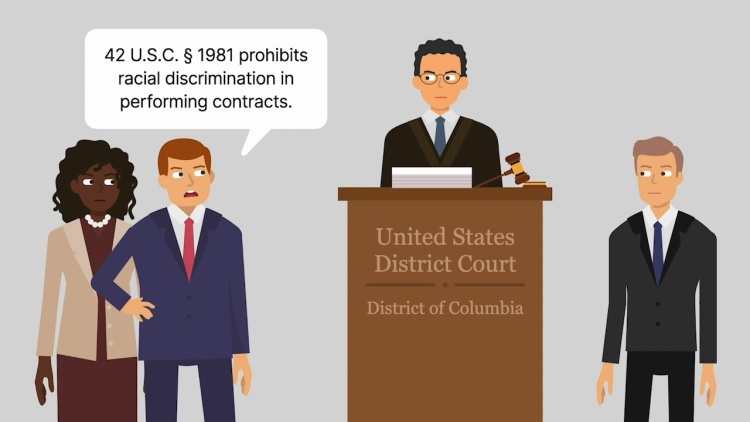Carney v. American University
United States Court of Appeals for the District of Columbia Circuit
151 F.3d 1090 (1998)

- Written by Sean Carroll, JD
Facts
Darion Carney (plaintiff), who was African American, was the director of student services at The American University (American) (defendant). Carney was named acting dean of students. Carney applied for the permanent dean position, but was not selected. Carney returned to her role as director of student services. American eliminated Carney’s position two years later during a period of downsizing. Carney sent a letter to American stating that she intended to sue for discrimination. American responded to Carney’s discrimination claim with a settlement letter indicating that Carney might be entitled to an additional three months’ severance pay under American’s personnel policies. However, American did not give Carney the additional three months’ severance pay. Carney brought suit against American in the United States District Court for the District of Columbia, claiming, in addition to discrimination, that American’s failure to give her the additional three months’ severance pay was in retaliation for her lawsuit. Carney sought to introduce the letter from American to prove her retaliation claim, but the district court excluded the letter under Federal Rule of Evidence (FRE) 408. The district court granted summary judgment to American. Carney appealed.
Rule of Law
Issue
Holding and Reasoning (Tatel, J.)
What to do next…
Here's why 899,000 law students have relied on our case briefs:
- Written by law professors and practitioners, not other law students. 47,000 briefs, keyed to 994 casebooks. Top-notch customer support.
- The right amount of information, includes the facts, issues, rule of law, holding and reasoning, and any concurrences and dissents.
- Access in your classes, works on your mobile and tablet. Massive library of related video lessons and high quality multiple-choice questions.
- Easy to use, uniform format for every case brief. Written in plain English, not in legalese. Our briefs summarize and simplify; they don’t just repeat the court’s language.





